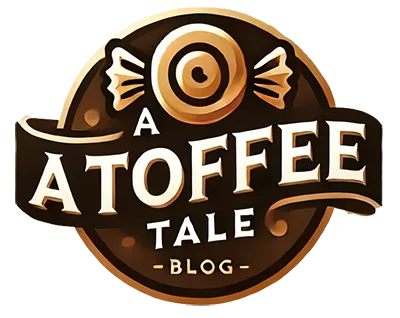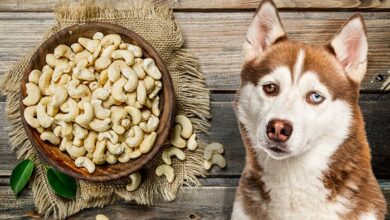Can Dogs Eat Croutons? A Guide to Safe and Healthy Snacking-2024

Can Dogs Eat Croutons? To find out, let’s first understand what croutons are. Croutons are small, crunchy pieces of toasted or fried bread that add a delightful texture to salads and soups.
They can be made from different types of bread, like white, whole wheat, or sourdough. Common ingredients include seasonings like salt, garlic, onion, and various herbs, while fats such as butter or oil are often used to enhance their flavor. While croutons might seem like a tasty treat, it’s crucial to know if they are safe for your furry friend. Let’s explore this further!
Let’s discuss briefly- can dogs eat Croutons?
Can Dogs Eat Croutons? Key Considerations
Can Dogs Eat Croutons? Many dog owners wonder if these crunchy bread cubes are safe for their pets. While croutons might seem like a harmless treat, their ingredients can pose certain risks. From seasonings like garlic and onion to high sodium content, croutons come with considerations that every dog owner should know.
When it comes to croutons, there are a few important factors to keep in mind. Some common ingredients can be harmful to dogs, while others may lead to digestive issues or discomfort. Here’s a closer look at these considerations.
Toxic Ingredients
- Garlic and Onion: These are common seasonings in croutons and can be toxic to dogs. Even in small amounts, garlic and onion can damage a dog’s red blood cells, potentially leading to serious health issues like anemia.
- Herbs and Spices: Croutons may also contain other seasonings that, while not always toxic, can irritate a dog’s stomach or trigger allergies.
Sodium Levels
Can Dogs Eat Croutons? High salt content in croutons can be risky, especially for dogs with kidney or heart issues. While a small amount of salt may not be harmful, croutons are often heavily salted, which can lead to dehydration and other health problems.
- Dehydration: Excess salt can quickly lead to dehydration in dogs, especially smaller breeds.
- Kidney Strain: High sodium intake can put additional stress on a dog’s kidneys, making it especially dangerous for dogs with existing health issues.
Digestive Upset
Croutons are often cooked with butter or oil to enhance flavor, which can be hard on a dog’s digestive system.
- Fat Content: High-fat content can lead to stomach upset and even conditions like pancreatitis in dogs.
- Bloating and Gas: The rich ingredients in croutons can cause bloating or gas, especially in dogs with sensitive stomachs.
Can Dogs Eat Croutons? Considering these potential risks, it’s generally safer to avoid feeding croutons to your dog. Instead, try pet-friendly treats that provide a similar crunchy texture without the added risks.
Pros of Giving Croutons to Dogs
Can Dogs Eat Croutons? While croutons aren’t necessarily made with dogs in mind, many pet owners wonder if these crunchy, bite-sized snacks can be shared safely. Some croutons can offer a bit of novelty and enjoyment for dogs, especially if given as a special, occasional treat. Let’s explore the potential benefits of giving croutons to dogs, keeping in mind moderation and the importance of choosing the right kind.
For certain dogs, plain, unseasoned croutons can add an enjoyable crunch and even a bit of variety. Here’s how croutons might occasionally work as a treat when chosen carefully and given sparingly.
Textural Enjoyment
Can Dogs Eat Croutons? Dogs often enjoy crunchy textures, and croutons certainly deliver that satisfying crunch. The texture itself can make croutons appealing, adding a fun sensory experience to their snack time.
- Crunch Appeal: Many dogs love the sensation of a crunchy bite, making croutons a fun occasional treat.
- Texture Variety: Different textures can help keep treats interesting for dogs, especially those who enjoy exploring new types of food.
Occasional Treat
Can Dogs Eat Croutons? Plain, unseasoned croutons, without any harmful seasonings, can work as a once-in-a-while snack. Offering a crouton now and then can satisfy a dog’s curiosity without posing a significant health risk when given in small amounts.
- Safe in Moderation: Croutons without salt, garlic, or other seasonings are generally safe in small amounts.
- Special Occasion Snack: An occasional crouton can be a novelty treat for dogs who enjoy trying new foods.
Variety in Snacks
Can Dogs Eat Croutons? Adding croutons as an occasional treat can introduce a bit of variety into a dog’s diet, especially if they tend to eat the same food regularly. This can be particularly useful for picky eaters or dogs who benefit from a change in their usual treats.
- Interest in New Flavors: A crouton here and there can add a new flavor and texture for dogs, helping to keep their diet from feeling monotonous.
- Snack Enrichment: Croutons can offer a new experience, especially if your dog enjoys different treats that offer diverse tastes and textures.
Can Dogs Eat Croutons? Overall, while croutons aren’t a regular or essential part of a dog’s diet, offering a plain one as a rare treat can be an enjoyable experience. Always check that the croutons are free from seasonings like garlic, onion, or added salts to ensure they’re safe for your dog.
Understanding the Risks
Can Dogs Eat Croutons? Croutons might seem harmless, but many varieties contain ingredients that can be risky for dogs. While some dogs might be tempted by the smell and crunch of a crouton, the seasonings, salt, and fat content in these little bread cubes can cause various health issues. Let’s look at the potential downsides to sharing croutons with your dog.
Cons of Feeding Croutons to Dogs
Croutons come with certain risks due to their ingredients, which are often better suited for human diets than for dogs. Here are some key concerns to consider before letting your dog enjoy this snack.
Health Risks from Seasonings
Can Dogs Eat Croutons? Many croutons are seasoned with garlic, onion, or other spices that can be toxic to dogs. Garlic and onion are particularly harmful, as they contain compounds that can damage a dog’s red blood cells and lead to serious health issues.
- Garlic Toxicity: Garlic, even in small amounts, can cause digestive upset and blood cell damage in dogs.
- Onion Dangers: Onions, like garlic, contain toxins that are harmful to dogs, leading to weakness, vomiting, and even anemia.
- Other Spices: Some herbs and spices used on croutons may be safe for humans but cause digestive issues for dogs.
High Sodium Concerns
Can Dogs Eat Croutons? Croutons are often high in salt, which can pose a risk for dogs, especially in larger amounts or for smaller breeds. Excessive salt can lead to salt poisoning, which can be dangerous and even life-threatening in severe cases.
- Dehydration Risk: High salt intake can dehydrate dogs, causing symptoms like thirst and lethargy.
- Salt Poisoning: Too much salt can lead to more serious issues, such as vomiting, diarrhea, and even seizures.
- Caution for Small Dogs: Smaller dogs are especially vulnerable to salt-related health issues since even a little extra salt can impact their health.
Potential for Pancreatitis
Can Dogs Eat Croutons? Croutons made with butter, oil, or other fatty ingredients can be hard on a dog’s digestive system. High-fat foods increase the risk of pancreatitis, an inflammatory condition of the pancreas that can be extremely painful and requires medical attention.
- Pancreatic Stress: Dogs are not well-suited to handle large amounts of fat, and fatty foods like croutons can put stress on the pancreas.
- Painful Condition: Pancreatitis can cause abdominal pain, vomiting, and loss of appetite in dogs.
- Requires Medical Care: Severe cases of pancreatitis often require veterinary treatment, so it’s best to avoid foods that could trigger it.
While croutons may seem like a harmless snack, their seasonings, salt, and fat can introduce risks to a dog’s health. Choosing safer, dog-friendly treats is a better way to show your pet some love without exposing them to potential health issues.
Healthier Snacking Alternatives for Dogs
Can Dogs Eat Croutons? If you’re looking for safer, dog-friendly alternatives to croutons, several options provide the crunch and taste your dog might crave without the risky ingredients. These alternatives are healthier and designed with a dog’s digestive system in mind.
Plain, Unseasoned Bread
Plain, unseasoned bread can make a good substitute for croutons if given in moderation. Bread without added salt, spices, or garlic is gentler on a dog’s stomach and safer overall. Toasted bread cubes can be a nice crunchy treat while minimizing the risks that come with seasoned croutons.
- No Added Salt or Seasonings: Keeps the snack safe and easy on a dog’s digestion.
- Moderate Portion Size: Bread should only be given in small amounts to avoid excess carbs and calories.
- Simple and Safe: Plain bread is a straightforward choice with a similar texture to croutons.
Vegetable Snacks
Many vegetables are safe, nutritious, and naturally crunchy, offering dogs a satisfying snack. Vegetables can also provide essential nutrients and are typically lower in calories than bread-based treats.
- Carrots: Crunchy, low-calorie, and high in fiber and beta-carotene.
- Green Beans: Packed with vitamins, minerals, and low in fat.
- Cucumbers: Hydrating and low-calorie, offering a refreshing crunch that dogs enjoy.
Dog-Specific Treats
Can Dogs Eat Croutons? Dog treats are specifically formulated for canine health, making them one of the safest options for a crunchy snack. Many of these treats are designed to be low in fat, salt, and sugar, with added benefits like vitamins and minerals for a balanced diet.
- Nutrient-Rich: Often fortified with vitamins, minerals, and even joint or dental support.
- Variety of Flavors: Available in a range of flavors to keep things interesting for your dog.
- Portion-Controlled: Designed with the right size and calorie count for a dog-friendly snack.
Choosing healthier snacking options ensures your dog can enjoy treats without the risks that come with croutons. With these safe alternatives, you can keep your dog’s health in check while giving them a tasty, crunchy snack.
What to Do If Your Dog Eats Croutons
Can Dogs Eat Croutons? If your dog just snatched a crouton or two, don’t panic. Croutons aren’t usually toxic, but certain ingredients in them can pose risks to your dog’s health. Let’s walk through a few steps to make sure your dog stays safe.
1. Check the Ingredients
Start by looking at the crouton ingredients to see if there are any harmful items your dog might have consumed.
- Garlic or Onion: These are common crouton ingredients and are toxic to dogs. Even small amounts can lead to health issues.
- High Salt Levels: Excessive sodium is not healthy for dogs, especially if they consume multiple croutons.
- Butter and Oils: These ingredients can be tough on a dog’s digestive system and may trigger stomach upset or even pancreatitis.
2. Observe for Symptoms
After your dog eats croutons, keep a close eye on them for any signs of discomfort or illness. Early symptoms might indicate if any action is needed.
- Vomiting or Diarrhea: Digestive upset can happen if your dog consumed fatty ingredients.
- Lethargy or Weakness: These can be signs of more serious issues, especially if garlic or onion were present.
- Excessive Thirst or Panting: This may indicate salt poisoning, particularly in smaller dogs.
3. Consult a Veterinarian
If your dog shows any concerning symptoms after eating croutons, it’s best to get in touch with a vet. Even if symptoms seem mild, consulting a vet provides peace of mind.
- Bring Ingredient Info: Share details of the crouton ingredients with your vet, as this can help them assess the risk.
- Follow Vet Recommendations: They may suggest monitoring at home or bringing your dog in for a check-up if the symptoms are worrisome.
Can Dogs Eat Croutons? Taking these steps ensures your dog’s safety and well-being after accidentally eating croutons. If you’re ever unsure, your vet is always a helpful resource.




